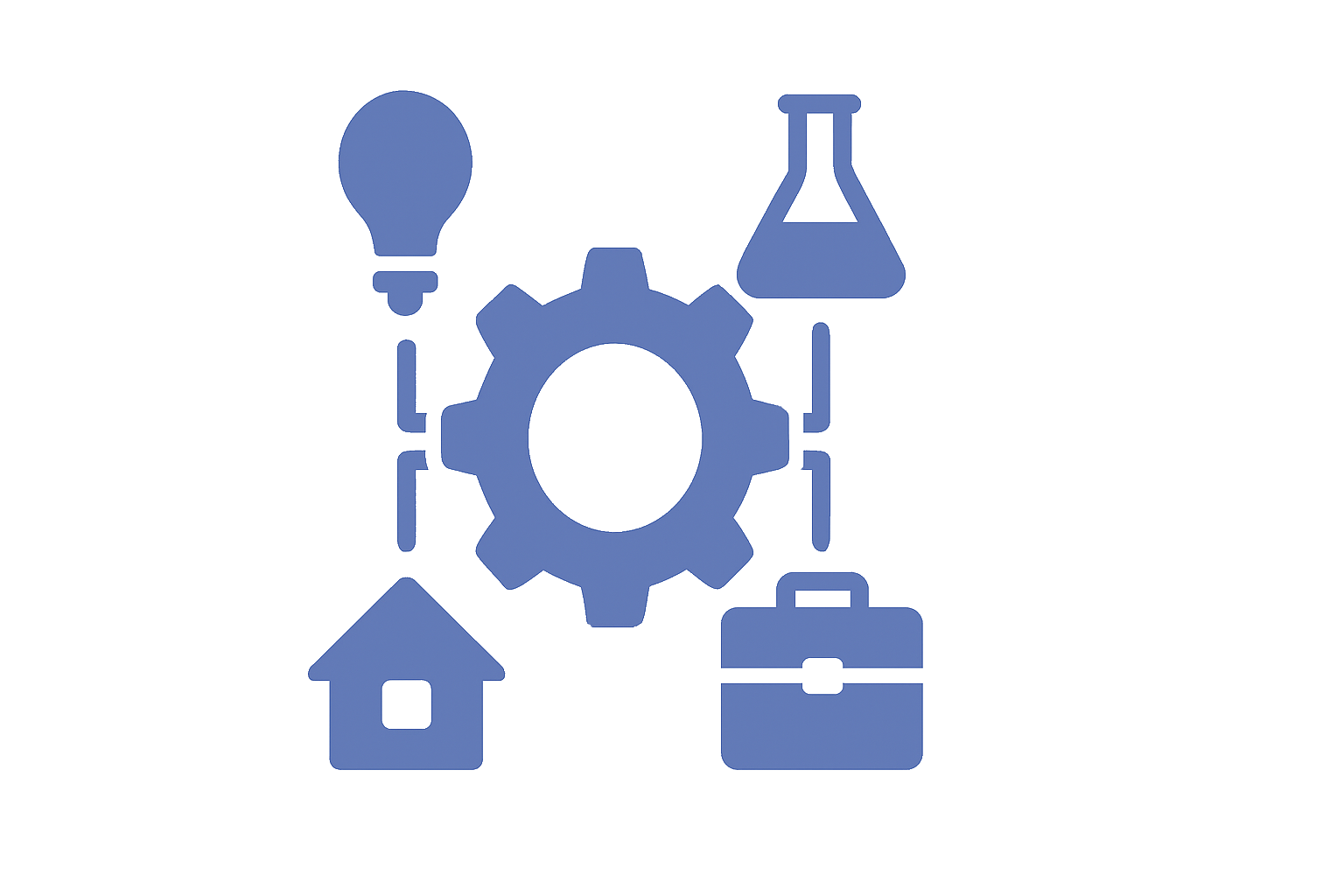Experience | Expertise

Experience | Expertise
The Inventive ExpertEpisode #125Debunking the Biodiversity Measurement Mythw/ Drea Burbank What This Episode Talks About: How To Manage Business & Self The prevailing misconception within my field...
The Inventive JourneyEpisode #564Embracing Business for Personal Growthw/ Kevin White What This Episode Talks About: How To Manage Business & Self In my work guiding personal growth,...
The Inventive FounderEpisode #10Starting Sooner: A Regret and a Lessonw/ Fong Chua What This Episode Talks About: How To Manage Business & Self I often find myself...
The Inventive JourneyEpisode #563Zooming Out for Successw/ Juana Sky What This Episode Talks About: How To Manage Business & Self The most valuable advice I can offer is...
The Inventive JourneyEpisode #562Leading with Passion: A Key to Successw/ Matthew Perlman What This Episode Talks About: How To Manage Business & Self It stems from my...
The Inventive ExpertEpisode #124Unmasking Toxic Workplacesw/ Samm Smeltzer What This Episode Talks About: How To Manage Business & Self I believe the most significant misconception revolves around...
The Inventive JourneyEpisode #561Preserving Financial Stability for Startup Successw/ Vinny Williams What This Episode Talks About: How To Manage Business & Self The most crucial piece of advice...
The Inventive FounderEpisode #9Choosing the Right CPAw/ Angela Thurman What This Episode Talks About: How To Manage Business & Self If I could go back, I would...
The Inventive JourneyEpisode #560Network Your Way to Successw/ Jayce Grayye What This Episode Talks About: How To Manage Business & Self Build your network relentlessly. You remain...
The Inventive JourneyEpisode #559Success Through Mentorship and Mastermindsw/ Shane Baldwin What This Episode Talks About: How To Manage Business & Self Surrounding yourself with a network of...
The Inventive ExpertEpisode #123The Website Overinvestment Misconceptionw/ Jason Ciment What This Episode Talks About: How To Manage Business & Self We discussed a prevalent misconception: the belief...
The Inventive JourneyEpisode #558Smart Business Tip: Organize Corporate Affairsw/ Brett Story What This Episode Talks About: How To Manage Business & Self I'm going to offer two...
The Inventive FounderEpisode #8Investment Strategy Reflectionw/ Mariam Ispahani What This Episode Talks About: How To Manage Business & Self We should have considered pursuing investment opportunities earlier,...
The Inventive JourneyEpisode #557Time Management Insights for Entrepreneursw/ Robert Lee What This Episode Talks About: How To Manage Business & Self Create a plan for managing your...
The Inventive JourneyEpisode #556Adjusting Expectations for Realistic Progressw/ Matthew Tompkins What This Episode Talks About: How To Manage Business & Self It's important to be prepared for...
The Inventive ExpertEpisode #122Circular Economy Misconceptionsw/ Julia Goldstein What This Episode Talks About: How To Manage Business & Self People often talk about something called the Circular...
The Inventive JourneyEpisode #555Balancing Business Focusw/ Ben Anderson What This Episode Talks About: How To Manage Business & Self I often advise individuals to allocate their time...
The Inventive JourneyEpisode #554Entrepreneurial Support: A Must-Havew/ Shadi Atassi What This Episode Talks About: How To Manage Business & Self Ensure you have a robust support network...
The Inventive JourneyEpisode #553Beyond Profit: Finding Your North Starw/ Shadi Atassi What This Episode Talks About: How To Manage Business & Self I would advise against solely...
The Inventive JourneyEpisode #552Don't Let Fear Hinder Your Dreamsw/ Christopher Hadley What This Episode Talks About: How To Manage Business & Self I would advise you not...
The Inventive ExpertEpisode #121The Entrepreneur's Role: Assembling Successw/ Craig Wolfe What This Episode Talks About: How To Manage Business & Self I believe the most significant misconception,...
The Inventive GrowthEpisode #5Balancing Commitments and Self-Carew/ Richard Blank What This Episode Talks About: How To Manage Business & Self I'm typically affected most by the...
The Inventive JourneyEpisode #551A Shift in Perspectivew/ Caleb Smith What This Episode Talks About: How To Manage Business & Self Conduct thorough research and introspection. Ask yourself,...
The Inventive JourneyEpisode #550Startup Essentials: Vision & Missionw/ Jeff Maine What This Episode Talks About: How To Manage Business & Self The most crucial advice for a...
The Inventive ExpertEpisode #120Skills and Knowledge for Successw/ Boris Krastev What This Episode Talks About: How To Manage Business & Self I believe the most significant misconception,...
The Inventive JourneyEpisode #549Succeeding in the Startup Rollercoasterw/ Kenny Rose What This Episode Talks About: How To Manage Business & Self Embracing the lean startup life means...
The Inventive FounderEpisode #6Embracing Change: A Lesson in Perseverancew/ Jeff Heggie What This Episode Talks About: How To Manage Business & Self At certain junctures, there was...
The Inventive JourneyEpisode #547Embracing Imperfection in Businessw/ Chuck Leblo What This Episode Talks About: How To Manage Business & Self You should possess at least a basic...
The Inventive JourneyEpisode #548Embrace Opportunities: Pursue Your Dreamsw/ Shivi Agarwal What This Episode Talks About: How To Manage Business & Self I'll encourage them to give it...
The Inventive ExpertEpisode #119Navigating Growth in the Regenerative Movementw/ Joshua Prieto What This Episode Talks About: How To Manage Business & Self Considering the regenerative movement and...

































